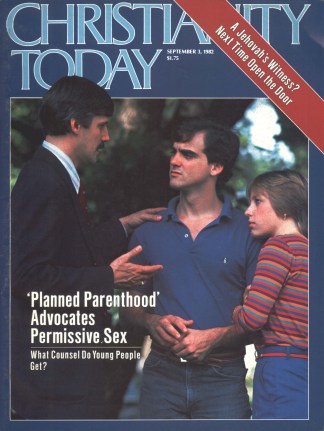Recently I asked a pastor if he had heard of an organization called Planned Parenthood. “Of course,” he responded. “It’s an organization to disseminate information about birth control and to offer counsel and help to girls who get into trouble.” Most people think of it as an advisory body that seeks to provide information about all sorts of sexual matters. Over the past decade government agencies have poured many millions of dollars into its coffers. Most do not know that it is primarily an advocacy group. Its goal is nothing less than to change the sexual morals of the American people—and not in the direction of traditional Hebrew-Christian ethics. Addie Jurs describes the inner workings of the organization and challenges us to do something about it.
In two splendidly written articles, Lee Ryken defends the legitimacy of a moral evaluation of literature (but his basis of judgment may surprise you), and Tom Howard lauds an old-fashioned virtue by calling on parents to instruct their children in godly wisdom. For theologians we have two pieces: Malcolm Muggeridge entertains us with a deceptively sharp thrust against liberal do-gooders, who too hastily brush aside the biblical doctrine of human depravity, and Clark Pinnock reviews briefly the theological foundations of Harvard’s Gordon Kaufman. According to Pinnock, Kaufman once again shows Scripture to be the watershed between evangelical theology that makes sense and a new liberalism that neither makes sense nor rests on firm ground.
At one time or another, all of us have been accosted by a Jehovah’s Witness peddling his religion from door to door. I am always torn between admiration for his zeal and pity for his cantankerous perversity. Like many another who exiles himself from society, he is most likely starved for love, and feeds his alienation upon the hatred and rejection he perceives in those around him—including Christians. Bob Morey suggests how we may best break through these barriers that separate, to meet a soul in need.









